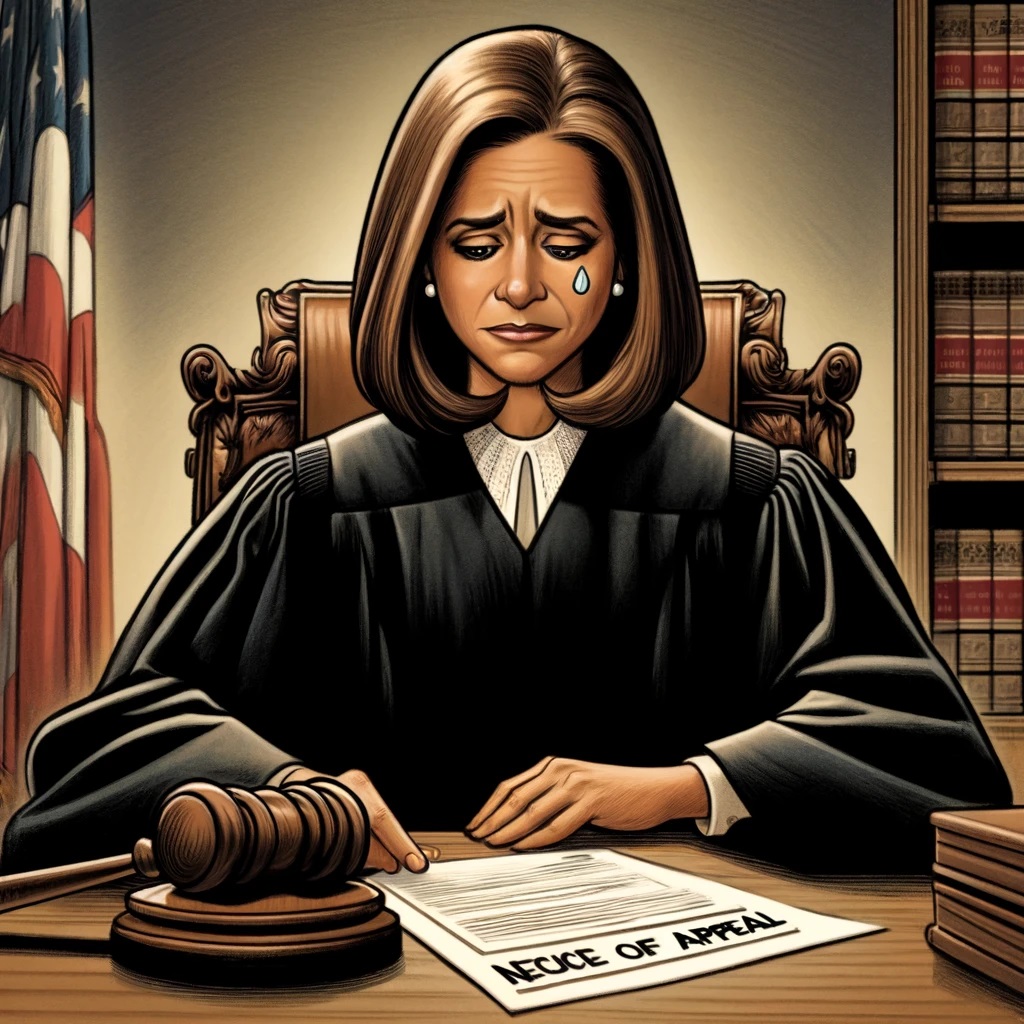
California follows the “one shot rule” for appeals, meaning, you only get one shot to appeal, and if you miss that shot then you’re done. Courts follow the rule religiously. No sympathy allowed.
But the Second District felt sympathy for the attorneys’ fees order in Norman v. Ross (D2d4 Apr. 23, 2024 No. B316971) [cert. for part. pub.]. Which is weird, not only because court affirmed anyway, and not only because the fee award is going to be increased on remand anyway, but the court also admonished the appellant’s lack of civility and professionalism.
The appeal was from an anti-SLAPP motion arising from Norman’s complaint alleging that defendant Tracee Ellis Ross, the actor who plays Rainbow Johnson in the TV show Blackish, stole plaintiff’s idea. Ross partially won her motion, and the Court of Appeal concluded she should have won completely.
Ross won a reduced fee award below, and Norman argued it should have been reduced much further. This seems anticlimactic now since Ross is going to get a whole lot more fees now she’s won her appeal. But this is the posture as we reach a perplexing analysis on appellate procedure.
After concluding that Ross’s anti-SLAPP should have been granted in full, the court turned to Norman’s appeal from the fee order. Ross had a good point that Norman’s appeal was untimely. The fee order was issued in May, and Norman had waited until December to appeal—more than six months, so clearly untimely. And the fee order is collateral to the merits, final, and awarded money, which is a textbook appealable collateral order. This meant, as the court acknowledged, that Norman was bound by the one-shot rule—if an order is appealable, then the appeal must be taken immediately or the right to appellate review is forfeited forever.
But the court declined to follow the one-shot rule and the collateral-order doctrine. Why? Because of a doctrinal exception? Because of an obscure exception? Nope. The court explained: “As a matter of fairness, we decline to dismiss Norman's appeal as untimely while case law on the issue is in conflict.”
True, there is a case, Doe v. Luster (2006) 145 Cal.App.4th 139 (discussed here), which held that an order denying anti-SLAPP fees was not appealable. But that order did not order money, so it did not qualify as a collateral order. And there is an unpublished case, Ibbetson v. Grant (D4d3 Nov. 30, 2022) No. G060473 (nonpub. opn.) (also discussed here), which reasoned its way out of the collateral-order doctrine. The reasoning is unsatisfying, in this commentator’s opinion, but it was something.
“A matter of fairness,” on the other hand, is not a reason. While the rules of appellate procedure may seem difficult and sometimes harsh, they are more transparent than a general sense “fairness.”
Besides, if the panel believes that the one-shot rule or the collateral-order doctrine did not apply here—i.e., that Norman’s side in the current split of authority is the correct one—it is the court’s job to say so, not just to bemoan the existence of split of authority and give all litigants a pass for so long as it persists. In the memorable case of Gardner v. Superior Court (1968) 182 Cal.App.3d 335, the trial judge thought the evasive defendants’ default should not be set aside, but rather than do his job and stand on the default, he resigned himself to the belief that he’d just get reversed, so why bother: “I can just see these guys in the Fourth Appellate District. The crocodile tears would be falling all over the place." The judge was wrong, the appellate court said, to forfeit his judicial independence: "To put the matter plainly, it is the trial judge's job to decide such cases. It is the judge's responsibility to consider and weigh all the evidence and argument and make a reasoned choice. Abdication to some imagined appellate compulsion is not the exercise of discretion." (More on Gardener here.)
The same goes for the panel here. The court may throw in with one side of the split or the other, or even stake out a third position. Instead, the court effectively held that “anything goes while there’s a split.” That is not how this is supposed to work.
The court went on to review the fee award. After all its violence to the rules of appellate procedure to reach the merits, the court found the arguments unsupported and even moot. The result was a rather unceremonious affirmance. In addition, Norman’s brief was “lacking in professionalism,” prompting a note about the expectation of “civility and decorum.”
All in all, this was a strange choice of case for the court to chip away at the one-shot rule and collateral-order doctrine.